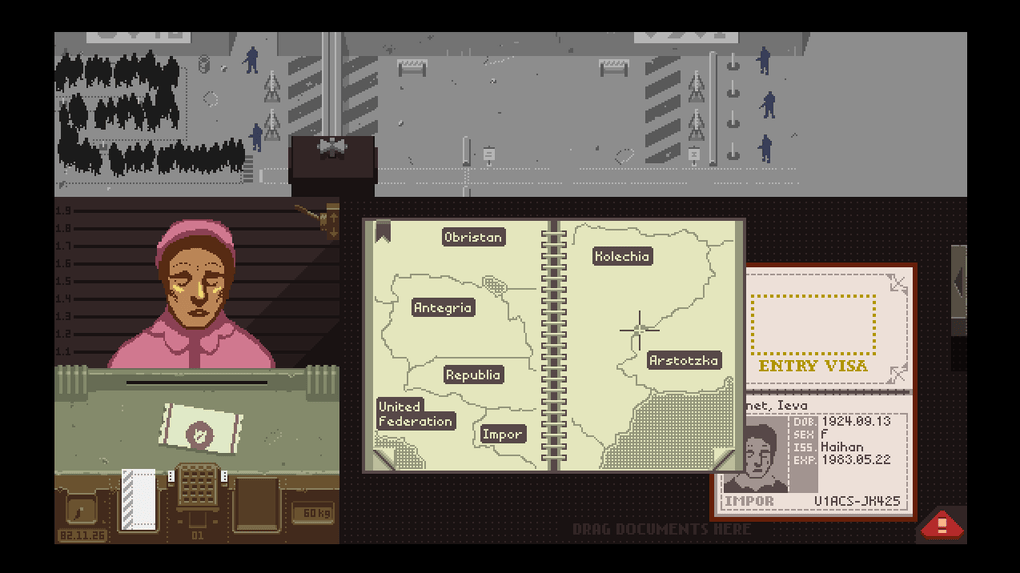

While the player is ostensibly serving as "the mayor" in SimCity and its sequels, his or her role is closer in practice to that of an omniscient city planner whose portfolio encompasses an ever-expanding range of public services over the course of the series. In contrast, games in the city-building/ management genre, most notably Will Wright's SimCity series, actually cast the player in the role of the bureaucrat (or, perhaps more accurately, the bureaucracy writ large).

Adams claims to have based the game - or at least its premise - on his own real-life experiences (" Bureaucracy", n.d.). Described by its tagline as "a paranoid fantasy", Bureaucracy features an inventive "blood pressure" mechanic too much frustration or too many mistakes elevate the player's blood pressure to the point of a fatal aneurysm.

In this game, a simple change of mailing address goes massively awry, pitting the player against the machinations of a faceless bureaucracy and an increasingly absurd set of obstacles, including a ruthless tribe of cannibals. A prominent early example is the aptly titled text adventure Bureaucracy (Infocom, 1987), designed by Hitchhiker's Guide to the Galaxy author Douglas Adams. Nevertheless, a handful of games have explored the byzantine inscrutabilities of modern bureaucracy. "Bureaucracy", after all, is seldom a word associated with play or fun rather, it conjures to the mind images of long lines, red tape, and forms filled out in triplicate. Keywords: bureaucracy, iron cage, Max Weber, Papers, Please, morality, rationalityĮven against the thematically diverse landscape of electronic entertainment, the promise and perils of bureaucracy are unlikely inspirations for a videogame. In this sense, Papers, Please offers a nuanced exploration of the disjuncture between morality and rationality that not only defines Weber's perspective on modernity, but also shapes much of the contemporary debate on immigration. Moreover, the moral choices presented to the player represent opportunities to subvert the iron cage, albeit at significant risk to the protagonist. This article argues that Papers, Please successfully replicates the monotony of bureaucratic work in videogame form, trapping the player in what sociologist Max Weber termed the iron cage of bureaucracy. During gameplay, these duties are complicated by several moral quandaries: Should the inspector allow individuals in need to cross the border without proper documentation, or should he faithfully enforce Arstotzka's laws? These decisions shape the game's outcome, with possible endings ranging from the inspector's imprisonment to the overthrow of the Arstotzkan regime. Papers, Please casts the player as an immigration inspector, processing paperwork at the border of the fictional dystopia of Arstotzka. Glory to Arstotzka: Morality, Rationality, and the Iron Cage of Bureaucracy in Papers, Please by Jess Morrissette Abstract


 0 kommentar(er)
0 kommentar(er)
